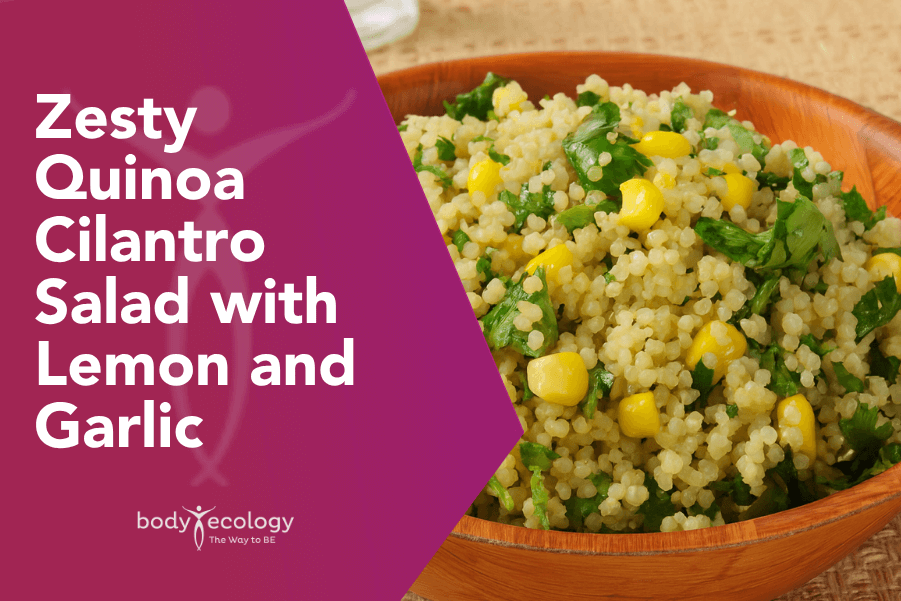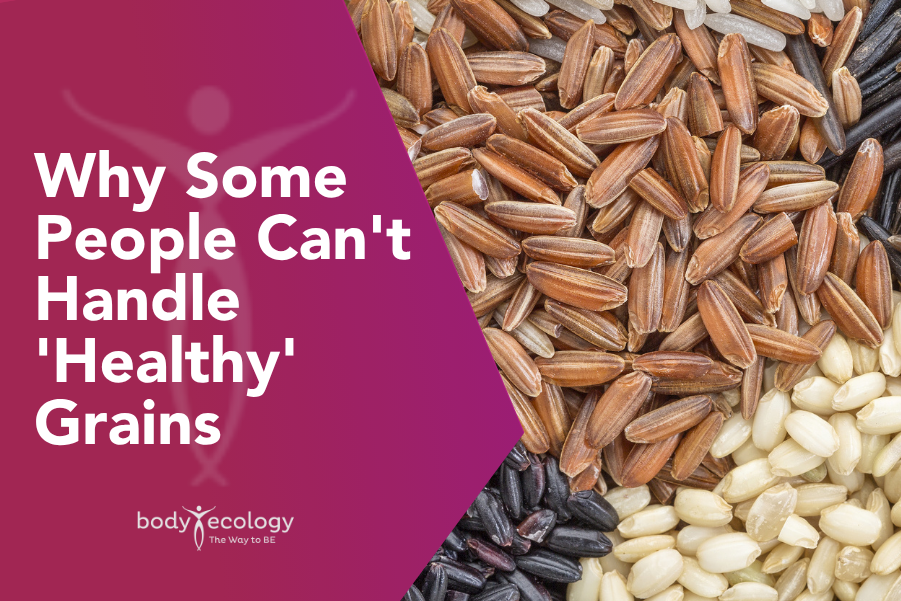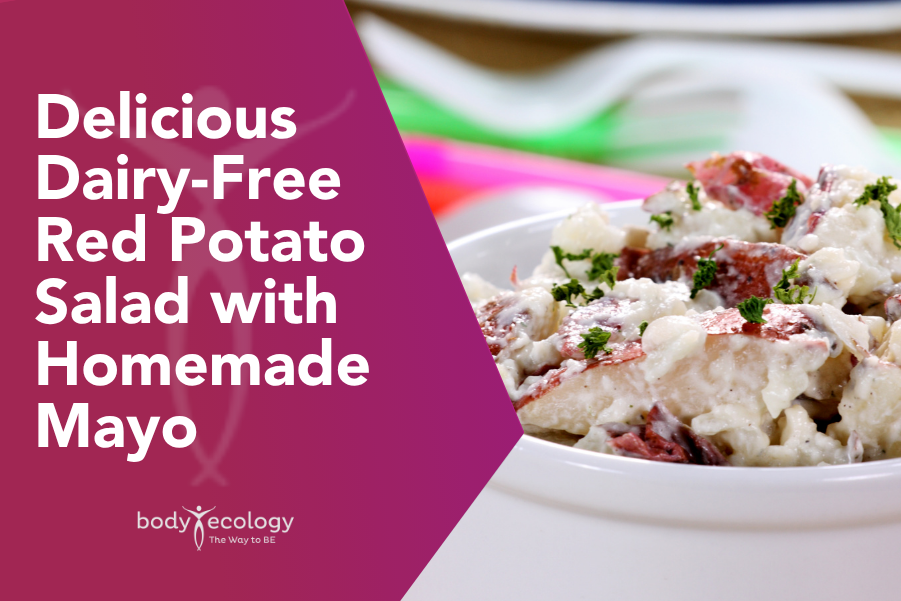It’s happened to the best of us: one minute you’re a delicious meal, then suddenly you’re bloated and wishing you’d worn stretchy pants.
Even more frustrating?
You’re taking probiotics, but the bloating still won’t budge.
According to research published in Clinical Gastroenterology and Hepatology, nearly 1 in 7 Americans experience bloating after eating — and women are more than twice as likely to experience bloating than men.
But, even though bloating is common, it’s not necessarily “normal”.
What’s more? Even though probiotics can help, there are some limitations.
Let’s talk about why, and what you can do to support your gut in a way that actually relieves the bloat, both now and long term.
What Really Causes Bloating?
Bloating happens when food isn’t fully digested and ends up fermenting in your digestive tract. That fermentation produces gas, and gas creates pressure.
A few of the most common culprits include:
- An imbalance in gut bacteria (called dysbiosis)
- Low stomach acid, which makes it harder to break down protein
- Missing digestive enzymes, which are essential for breaking food into absorbable nutrients
- And eating habits that overwhelm digestion, like combining too many dense foods at once.
When digestion slows down or stalls, food sits longer in the gut. The longer it sits, the more opportunity there is for gas to build and bloating to happen. That’s why you might feel fine during a meal but swollen and sluggish afterward.
And if you’re only addressing symptoms (like cutting out “bloaty” foods), you’re missing the bigger picture.
Why? Because bloating isn’t just about what you eat, it’s about how your body processes what you eat.
In other words, you could have the cleanest diet in the world, but if your gut bacteria are out of balance, your stomach acid is low, or you’re not producing enough digestive enzymes, bloating will keep coming back.
Can Probiotics Help With Bloating?
The short answer is yes — but not always right away.
How probiotics can help long-term
Since dysbiosis is one of the most common root causes of bloating, it makes sense that probiotics — when used consistently — can make a big impact.
By repopulating the gut with friendly bacteria, probiotics help shift the balance back in your favor. That means fewer gas-producing microbes, better nutrient absorption, and improved regularity. Over time, this helps relieve the bloating that comes from poor digestion, sluggish motility, and microbial imbalance.
Probiotics also play a supporting role in areas that aren’t always obvious, like strengthening the gut lining, calming low-grade inflammation, and helping your system become more resilient to the triggers that once left you feeling swollen and uncomfortable.
But here’s the catch: they don’t always feel like they’re helping at first.
Why you might feel more bloated when you take probiotics
When your gut is out of balance, introducing new strains of beneficial bacteria can stir things up.
Probiotics begin to crowd out harmful microbes, and as those microbes die off, they can release gas and toxins in the process. That die-off, combined with shifting microbial populations, can temporarily lead to more bloating, not less.
It might feel like a step back, but it’s actually a sign that change is happening. Your inner ecosystem is recalibrating.
You can ease some of that temporary bloating by:
- Starting with a lower dose – Begin slowly and gradually build up as your body acclimates. This gives your microbiome time to adjust without overwhelming it.
- Taking probiotics with food – A small meal or snack can buffer your system and help the microbes integrate more gently.
- Supporting detox pathways – Drink plenty of filtered water, and consider herbs like ginger or milk thistle to support your liver during this microbial shift.
- Adding digestive enzymes – Enzymes can help break down food more efficiently and reduce the gas-producing fermentation that may spike during probiotic adjustment.
- Avoiding sugar and refined carbs – These feed the very microbes you’re trying to crowd out. Keeping your meals clean supports the good guys in taking hold.
Frustrating? Yes. But is it worth it? Also yes!
If you stay consistent, things typically balance out within a couple of weeks.
How to Get Faster Relief From Bloating
If you’re looking for faster, in-the-moment support, digestive enzymes are your next best step.
Their job? Break food down into smaller, usable parts so your body can actually absorb the nutrients in what you eat.
This becomes especially important when it comes to the three most common foods that cause bloating: dairy, protein, and carbs.
- Dairy contains lactose, a sugar that requires the enzyme lactase to digest. But as we age, our natural lactase production drops. This makes even small amounts of milk, cheese, or cream hard to tolerate.
- Protein needs to be broken down by protease and activated stomach acid. Without enough of either, it can sit in the gut undigested, ferment, and produce gas.
- Carbohydrates, especially refined or starchy ones, often overwhelm the digestive system. When they aren’t fully broken down by amylase, they feed the wrong microbes and contribute to gas and bloating.
Unfortunately, our bodies don’t always make enough of these enzymes. Plus, factors like stress, aging, gut imbalances, and a diet low in raw or fermented foods can all reduce enzyme production over time.
When that happens, food doesn’t break down properly in our gut, and bloating is often the result.
That’s why taking digestive enzymes with meals can bring such quick relief.
They help lighten the load on your system, reduce fermentation, and get things moving more smoothly. You might feel a difference in just a few minutes.
Of course, most meals aren’t made up of just one food group. They combine proteins, fats, and carbs — all of which require different enzymes to break down properly.
Why You Need a Full-Spectrum Enzyme
To really take the pressure off digestion and keep bloating at bay, you need support that can handle the full complexity of a real meal. A full-spectrum enzyme offers exactly that: a blend of multiple enzymes that work together to break down proteins, fats, carbs, fiber, and even harder-to-digest plant compounds.
Take a simple bowl of chili, for example. If you have a hard time breaking down proteins, fats, and carbs, you’ll need:
- Protease for the meat
- Amylase for the beans
- Lipase for any fat
- And cellulase to help break down fiber in the vegetables
If you’re missing even one of those, it can throw off the entire digestive process.
Why People Prefer Body Ecology’s Assist Full Spectrum Enzymes
Here’s why it stands out:
- It contains multiple types of protease to support protein digestion across the entire pH range—from your stomach to your small intestine.
- It offers support for all macronutrients with enzymes like amylase (for carbs), lipase (for fats), and lactase (for dairy).
- It includes bonus digestive power from naturally occurring plant enzymes like bromelain and papain to enhance breakdown and ease discomfort.
- There are zero fillers, allergens, or harsh additives — just clean, effective enzyme support your gut will thank you for.
- And because it’s fast-acting, you can feel the difference quickly. So that post-meal heaviness and the bloating that sneaks in an hour later?
This is your daily support to help you manage that occasional discomfort before it slows you down.
TRY ASSIST FULL SPECTRUM ENZYMES
Sources:
Crucillà, S., Caldart, F., Michelon, M., Marasco, G., & Costantino, A. (2024). Functional Abdominal Bloating and Gut Microbiota: An Update. Microorganisms, 12(8), 1669. https://doi.org/10.3390/microorganisms12081669
Machado, A., Ayala, A., Gordillo, E., Revilla, E., & Santa Maria, C. (1991). Relationship between enzymatic activity loss and post-translational protein modification in aging. Archives of Gerontology and Geriatrics, 12(2–3), 187–197. https://doi.org/10.1016/0167-4943(91)90027-N
Oh, J., & Spiegel, B. M. R. (2022, November 24). Bloating common issue among Americans, study reports. Clinical Gastroenterology and Hepatology. Cedars-Sinai. https://www.cedars-sinai.org/newsroom/bloating-common-issue-among-americans-study-reports/
console.log( 'Code is Poetry' );
























